Reviews
Jake Kasdan
USA, 1998
Credits
Review by Rumsey Taylor
Posted on 25 June 2013
Source Turner Home Entertainment DVD
Categories Failed Franchises
We are first introduced to Daryl Zero, a much renowned and very private private detective, after he’s finished another of his homemade songs, which he renders in a woeful, sandpaper voice and a guitar that he bangs upon in haphazard fashion. He’s standing on his bed, and as the camera pans up his body it reveals cowboy boots, a kimono, and a casually disheveled mop of bleached hair. His head tilted to the side, he smiles at us, and we smile back, bemused at the ragamuffin appearance of a man heretofore described as one of the most perceptive minds in the world. We laugh at his song, also, because it is so incongruously absurd.
The Zero Effect came out in 1998 and embodies a particular type of film beholden to that era, as indicated by a tonal asynchrony between its comedic elements and the abrasive relationships of its characters. Ben Stiller seems to be the preeminent feature of this sort of movie, given his glaring, wild-eyed contributions to The Cable Guy, Permanent Midnight, Flirting with Disaster, and The Royal Tenenbaums. Despite strong reviews and preternaturally ripe direction on the part of first time writer-director Jake Kasdan (who was twenty-three at the time), the film was issued to the public in the traditionally lackluster month of January, and like many of its brethren in Stiller’s filmography, may have dumbfounded audiences with its meld of comedy and confrontation.
Stiller plays Steve Arlo, a Watson to Zero’s Holmes. He’s tasked with operating as Zero’s liaison with his clientele, because Zero, for all his capability in perception and deduction, has essentially no social grace. Much of the comedy of the film derives from the interaction between these two characters: Arlo, constantly dismayed by Zero’s illogical social interaction, and Zero, who in disguise is adept at relaying his investigation but altogether senseless when he’s his real self.
The relationship between these two stems from the fact that Zero only has to be his real self in the presence of Arlo. Otherwise, he’s at his home, flanked by an array of computer monitors and keyboards in a horseshoe-shaped desk. (This image, because Zero is played by Bill Pullman, is strangely akin to Wim Wenders’ The End of Violence, which puts Pullman afore another desk full of computers.) Arlo negotiates Zero’s relationship with his clients, who never knowingly meet Zero. At the start of The Zero Effect, Arlo and Zero seem to have been engaged in this arrangement for enough time for them to have developed a rapport that describes two people who know precisely how to aggravate each other.
The structure of the film establishes Zero’s practice and origin on one thread, and the plot of his latest case on the other. As a means of compartmentalization, his latest case is somewhat conclusive with respect to his relationship with Arlo, as it finds his demands of his assistant to grow more disagreeable. The client is a businessman in Portland, Oregon, a flight away from Zero’s home in Los Angeles, and Zero instructs Arlo to travel there and back almost daily. Aggravated, Arlo can barely keep up with his live-in girlfriend, to whom he has proposed marriage. Zero is not unsympathetic to this circumstance, it seems, just ignorant of the stress he’s placing on Arlo.
The case has a catalytic effect on Zero, for it serendipitously puts him at odds with a love interest named Gloria. He discovers that she has been blackmailing his client, to whom she may have more than an entrepreneurial connection. Zero’s job isn’t to expose her, and his growing interest in Gloria begins to threaten what he describes as his central strategy: observation and objectivity—“The two ‘Obs,’” he calls them.
This, the central drama of the film, is conceived proficiently on the part of Kasdan, and on paper it’s an engaging dilemma because it deepens the otherwise impersonal character of Zero. But this doesn’t make for an explicitly cinematic character, as Zero’s emotions are largely obscured by a facade of rumination and indifference. This dynamic leads to a curious performance from Bill Pullman, an actor who I’ve never felt has been extolled in any particular film. In Lost Highway he’s calculated and restrained, two qualities Pullman ably embodies, and in Spaceballs he works just fine in the context of a parody, in which his status as an intergalactic hero never needs to be considered seriously. But in The Zero Effect, Pullman is volleyed between these two extremes: on one hand, when he’s investigating he’ll don a ridiculous disguise and your response, appropriately, is to laugh, but when he’s discussing his case with Arlo he’s more emotionally mute; when he meets Gloria, he finds himself at the fulcrum between these two modes, and thus the fabric of Pullman’s performance becomes increasingly threadbare. The Zero Effect is a film of much ingenuity with regard to its plot and structure, and an array of colorful supporting performances - Kim Dickens, who plays Gloria, is unexpectedly nuanced within the otherwise exaggerated enterprise - but it lacks a charismatic lead, a spindle to support the carousel. Tasked with this responsibility, Pullman - ever the more restrained - is overshadowed by everyone he encounters.
The Zero Effect, to my knowledge, was never intended to be a franchise, but Kasdan would revisit the character three years later in an unaired television pilot.1 I assume the idea would have been for Zero to pursue more investigations on an episodic basis, with Arlo, at least, in tow. But it would have taken a markedly different approach to characterization given that Alan Cumming was cast as Zero, which alludes to a much less inhibited conception of the character. The pilot was never picked up, and whatever legacy The Zero Effect has achieved remains in the improbable and peculiar image of Bill Pullman in cowboy boots and a kimono, holding that guitar and standing on his bed.
More Failed Franchises
-
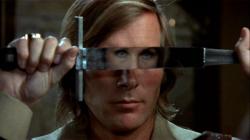
Captain Kronos - Vampire Hunter
1974 -
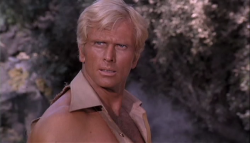
Doc Savage: Man of Bronze
1975 -
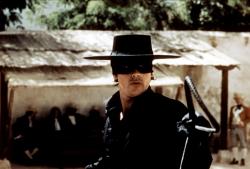
Zorro
1975 -
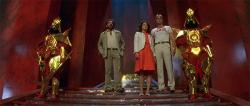
Flash Gordon
1980 -
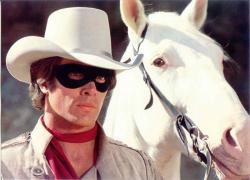
The Legend of the Lone Ranger
1981 -
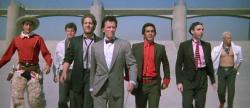
The Adventures of Buckaroo Banzai Across the 8th Dimension!
1984 -
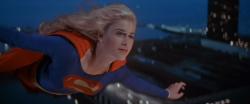
Supergirl
1984 -

Dune
1984 -
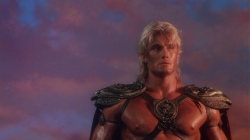
Masters of the Universe
1987 -
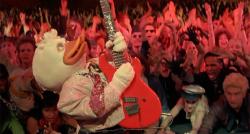
Howard the Duck
1986 -

Willow
1988 -
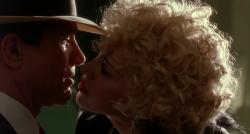
Dick Tracy
1990 -
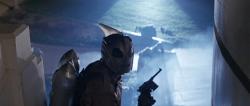
The Rocketeer
1991 -
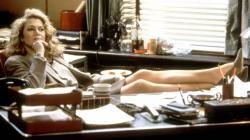
V.I. Warshawski
1991 -
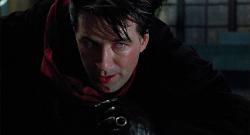
The Shadow
1994 -

Godzilla
1998 -
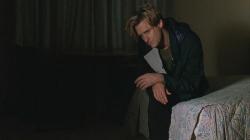
The Zero Effect
1998 -

The Mod Squad
1999 -

Hulk
2003 -
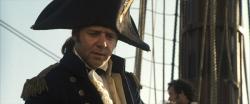
Master and Commander: The Far Side of the World
2003 -
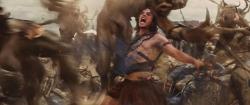
John Carter
2012
We don’t do comments anymore, but you may contact us here or find us on Twitter or Facebook.



